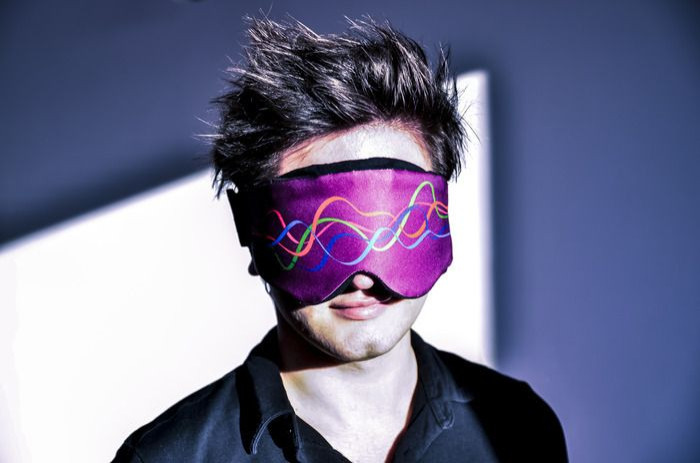New NeuroOn Sleep Mask Helps You Power Nap; Users May Abandon Longer Sleep Schedule

Many Americans, approximately 50 to 70 million don’t get enough sleep, according to the Centers for Disease Control and Prevention. This affects all aspects of life, including work productivity, happiness, and overall health. Many of us live in a fast-paced environment so getting enough quality sleep is sometimes near impossible. In response to this, founder and medical student Kamil Adamczyk and his colleagues at Intelclinic developed a sleep mask called the NeuroOn to promote a more efficient — yet less time consuming — sleep schedule.
The NeuroOn is designed to transition someone from monophasic to polyphasic sleep, which means that you can sleep less but efficiently. A polyphasic sleep pattern is defined by napping various times throughout the day instead of sleeping the standard eight hours at night. The mask is intended to help adjust your cycle using a series of sensors that distinguish between REM and NREM sleep stages. "Both sleep stages are necessary for us," said Adamczyk to Wired magazine. “A regular sleep contains only about 15 percent of REM sleep. We could regenerate faster if we would enlarge the time spent in REM sleep, and polyphasic sleep is all about it."
The NeuroOn has brain wave sensors which allow the mask to measure the movements of your eyes and the muscles in your face. By doing this, the mask helps people track their sleep patterns and know which times of day are best for them to sleep. This is comparable to patients visiting a sleep clinic, but instead of being prodded and probed by a number of wires, the sleep mask seemingly replaces all of this.
When you sleep the mask then sends data to your smart phone, which can be converted into graphs according to the Smithsonian magazine. When you’ve completed your last REM sleep, the NeuroOn wakes you up with lights, a vibration, or a sound alarm. The inventors also suggest that NeuroOn will be able to induce coherent dreaming, which Adamczyk and his team are hoping will lead to sleepers taking over their own dreams with the help of their sleep masks.
The inventors claim that by using the NeuroOn every person can gain an extra four hours of free time every day. Or course these are merely speculations as the mask is still in its prototype stage. The inventors also emphasize the convenience of their sleep mask. "We want our device to be used every day. That implies that the mask has to be extremely comfortable. That's why we will never be as precise as [the clinics] but still precise enough to provide our users with valuable date,” Adamczyk said to Wired magazine.
So far, the Intelclinic funding campaign has raised $438,573, enough to start making and shipping out their prototypes. The estimated delivery for the initial backers is May 2014.



























